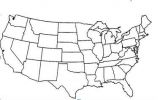| « Dear FCC | Mr. Darrow, For the Defense » |
Hearts and Minds
A hypothesis developed through non-rigorous observation:
Most of us derive our political beliefs primarily on the basis of emotion rather than reason. When stating our position on an issue, it is not uncommon to begin with the phrase “My feeling about that is.” If you think political positions are the consequence of rational investigation, you would be wrong far more times than right. Anecdotal evidence of this exists on both the Left and the Right, where people espouse policy positions in visceral or even moral terms. As ideology has more and more infected our political discourse, this tendency to dismiss empirical evidence has grown.
Take a basic issue such as US Government spending on foreign aid. According to a 2013 Kaiser Family Foundation survey, Americans believe that 28 percent of the federal budget is spent on foreign aid; the actual figure is about 1 percent. Despite this, 30% of us think we spend too much on aid to other countries. *
Two months ago, Ezra Klein posted a provocative article on the Vox blog site (“How politics makes us stupid”) in which he investigated what he termed the More Information Hypotheses- the idea that the more is learned about an issue, the better equipped opposing sides will be to agree on policy. It’s the “we-all-know-the-same-facts” theory. The point of Klein’s article is that the evidence does not bear this out. “Cutting-edge research shows that the more information partisans get, the deeper their disagreements become,” he states.
He cites- in detail- the work of Yale Law professor Dan Kahan and his research team who have investigated the question of “why isn’t good evidence more effective in resolving political debates?” Their data, based on testing modalities used by social scientists, led them to the conclusion that individuals act to maintain their identity within their “tribe” or group and therefore make decisions based on what was accepted by the group no matter what evidence might exist. Rational behavior means we “protect our idea of who we are, and our relationships with the people we trust and love.” Kahan terms this theory Identity-Protective Cognition and describes it "as a way of avoiding dissonance and estrangement from valued groups” that leads “individuals [to] subconsciously resist factual information that threatens their defining values." In brief, it is not unreasonable to make unreasonable choices, at least when it comes to political issues. While it is not unreasonable for any individual to do so, the danger of this approach occurs when it is used by groups to form beliefs. The impact on our politics of large groups eschewing an evidentiary approach to policy formation in favor of an ideological one is a root cause of the policy disagreements we currently witness.
What is not discussed in Klein’s article or in his presentation of Kahan’s studies are the reasons why individuals select a political tribe with which to identify in the first place. Kahan describes how people behave after they align themselves with a particular group. He does not address the fundamental issue of why they chose that group. My own theory (unproven) is that the choice is based on a combination of emotional factors, some of which are affirmative (“I believe in the right to bear arms”), but many of which are negative (“If Obama supports it, I’m against it”). I doubt this phenomenon is limited to America, but the American version is embedded in the foundation of our culture. Thomas Frank captured this perfectly in his watershed book,What's the Matter with Kansas? How Conservatives Won the Heart of America (2004).
(I also refer you to a post I wrote a year ago wherein I cited Richard Hofstadter’s opus on the subject, Anti-Intellectualism in American Life.)
As a solitary opinion writer of a personal blog, I do not possess the wherewithal to undertake a serious study of the subject. I do think such a study is necessary. If behavioral science can shed light on the reasons we have certain political preferences, then perhaps the way is open for a new generation of political leaders to take us in a more rational direction.
One can only hope, I suppose.

